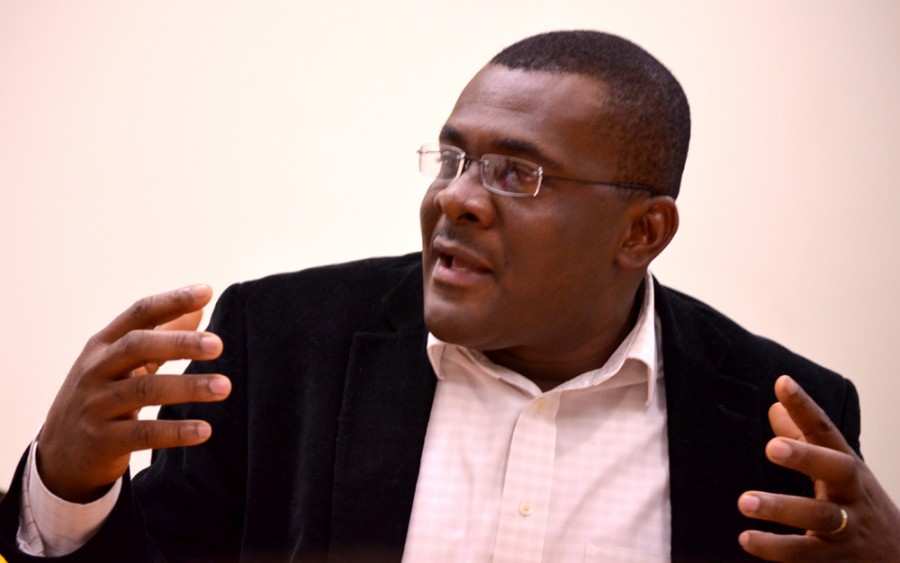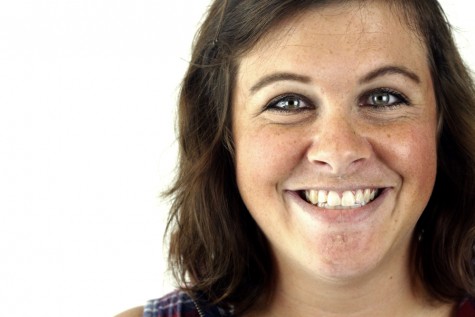Students question new civil rights movement
Dr. Felix Kumah-Abiwu answers students questions about the Civil Rights Movement Tuesday during the Revisiting the Civil Rights Moment of the 1960’s event at Mary J. Booth Library.
November 5, 2014
Students examined social issues that could be leading to another civil rights movement during a panel Tuesday in Booth Library.
Felix Kumah-Abiwu, professor of Africana studies, facilitated the panel for students in his class to present the issues.
Brandon Byers, an applied engineering and technology major, said segregation is in the United States’ recent past, and it still occurs in some parts of the world.
Byers also said recent instances such as the protests in Ferguson have been discouraging young African-American from continuing with their education because they do not think it will matter.
Bria Caldwell, the vice president of NAACP at Eastern, commented on political issues in the black community.
“After our actual president’s election, the Democrats and the African-American community proved that they can sway an election,” she said.
The students also showed statistics illustrating that African-American and Hispanic people face poverty and make up the majority of the population in jail.
Nyjah Lane, a psychology major, asked Kumah-Abiwu if he thought people would take away that it is black people’s fault they face poverty from the presentation.
He responded that black people have to play their role in uplifting their communities just as any other would.
Aaron Carter, a family and consumer sciences major, showed pictures from 50 years ago when bathrooms and water fountains were divided and classified for black people and white people.
“Embrace the past and learn from the past,” Kumah-Abiwu said.
Taneja Shaw, a sophomore marketing major, said she enjoyed the discussion.
“It was a great opportunity to discuss about what was going on in the world, educational and race wise,” Shaw said. “I liked the way everything was broken up in sections explaining the impacts of social movement.”
Kumah-Abiwu invited the audience to join the Conversation for Social Movement, a group of students and community members that focuses on social issues.
Kumah-Abiwu said everyone in the nation has a role to play when addressing the challenges minorities face.
“What happened in Ferguson was really unfortunate, and there is still a majority of African-American who are facing these challenges,” he said. “We cannot leave the society that are struggling alone.”
Coraima Vazquez can be reached at 581-2812 or cyvazquez@eiu.edu.

















![[Thumbnail Edition] Senior Foward Macy McGlone, getsw the ball and gets the point during the first half of the game aginst Western Illinois University,, Eastern Illinois University Lost to Western Illinois University Thursday March 6 20205, 78-75 EIU lost making it the end of their season](https://www.dailyeasternnews.com/wp-content/uploads/2025/03/WBB_OVC_03_O-1-e1743361637111-1200x614.jpg)




















































